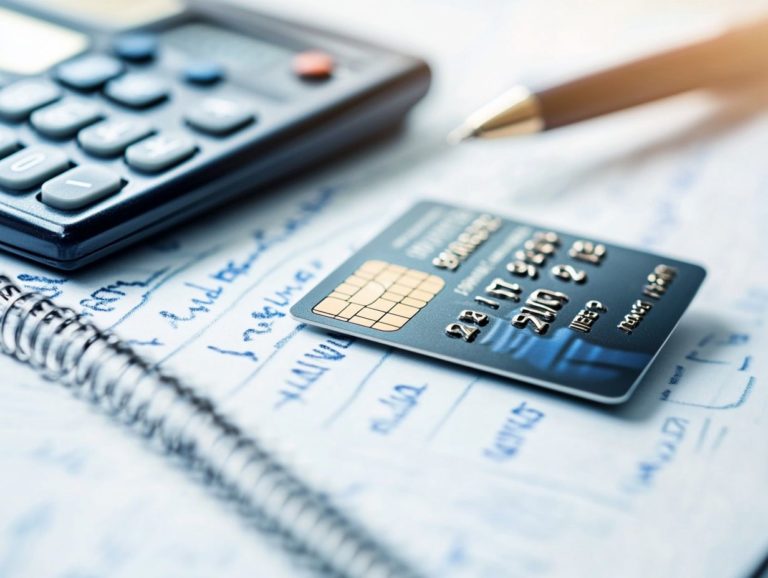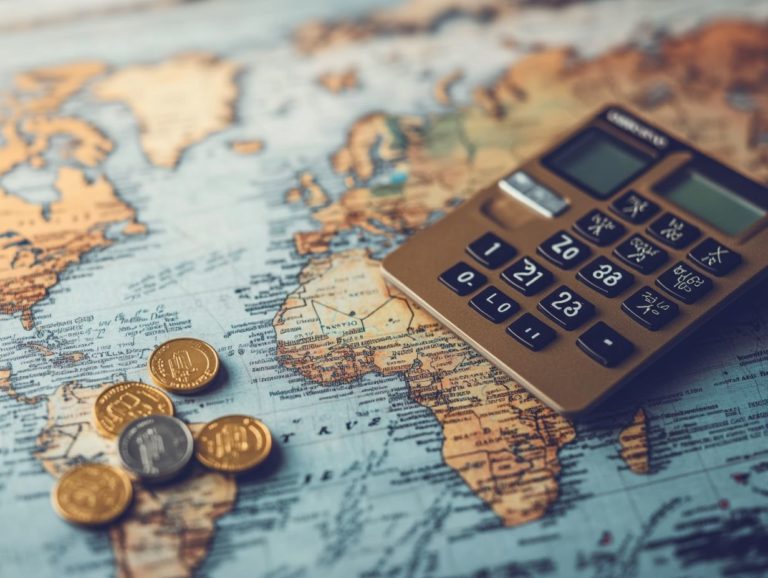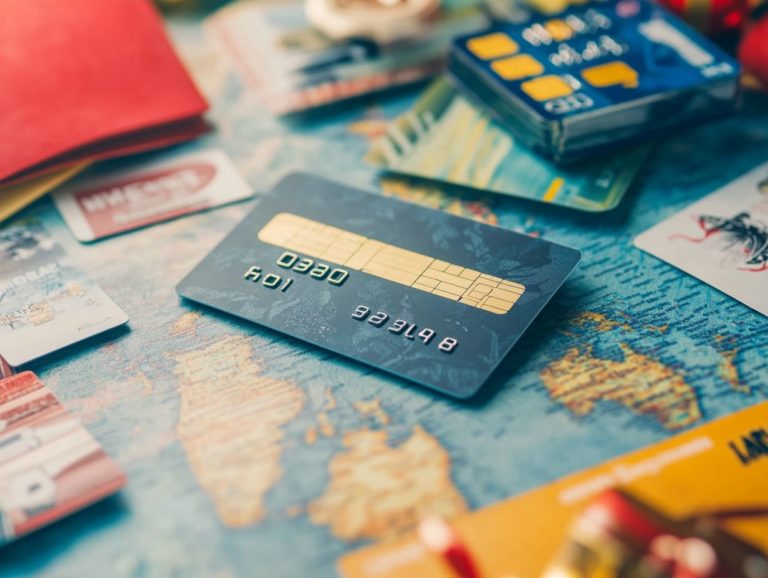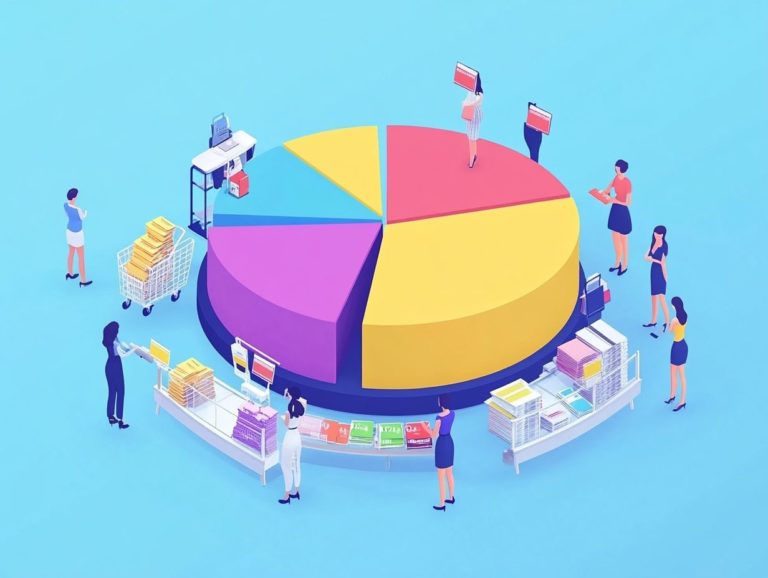The Benefits of Credit Cards During Emergencies
In unpredictable situations, having a dependable financial backup can truly make all the difference. Credit cards can act as a lifeline during emergencies, offering immediate access to funds and an added layer of security.
This article delves into the key benefits of using credit cards when unexpected expenses arise. It also offers practical tips for managing your finances effectively.
You ll find alternatives to credit cards discussed, ensuring you re well-prepared for any curveballs life might throw your way. Keep reading to learn how to handle emergencies with confidence!
Contents
- Key Takeaways:
- Benefits of Using Credit Cards in Emergencies
- Tips for Using Credit Cards in Emergencies
- Alternatives to Credit Cards for Emergencies
- Frequently Asked Questions
- What are the benefits of using credit cards during emergencies?
- How can credit cards help with unexpected costs during a crisis?
- Do credit cards offer any additional protection during emergencies?
- What are the drawbacks of using credit cards during emergencies?
- Can credit cards be used for emergency travel expenses?
- What are the best practices for using credit cards during emergencies?
Key Takeaways:
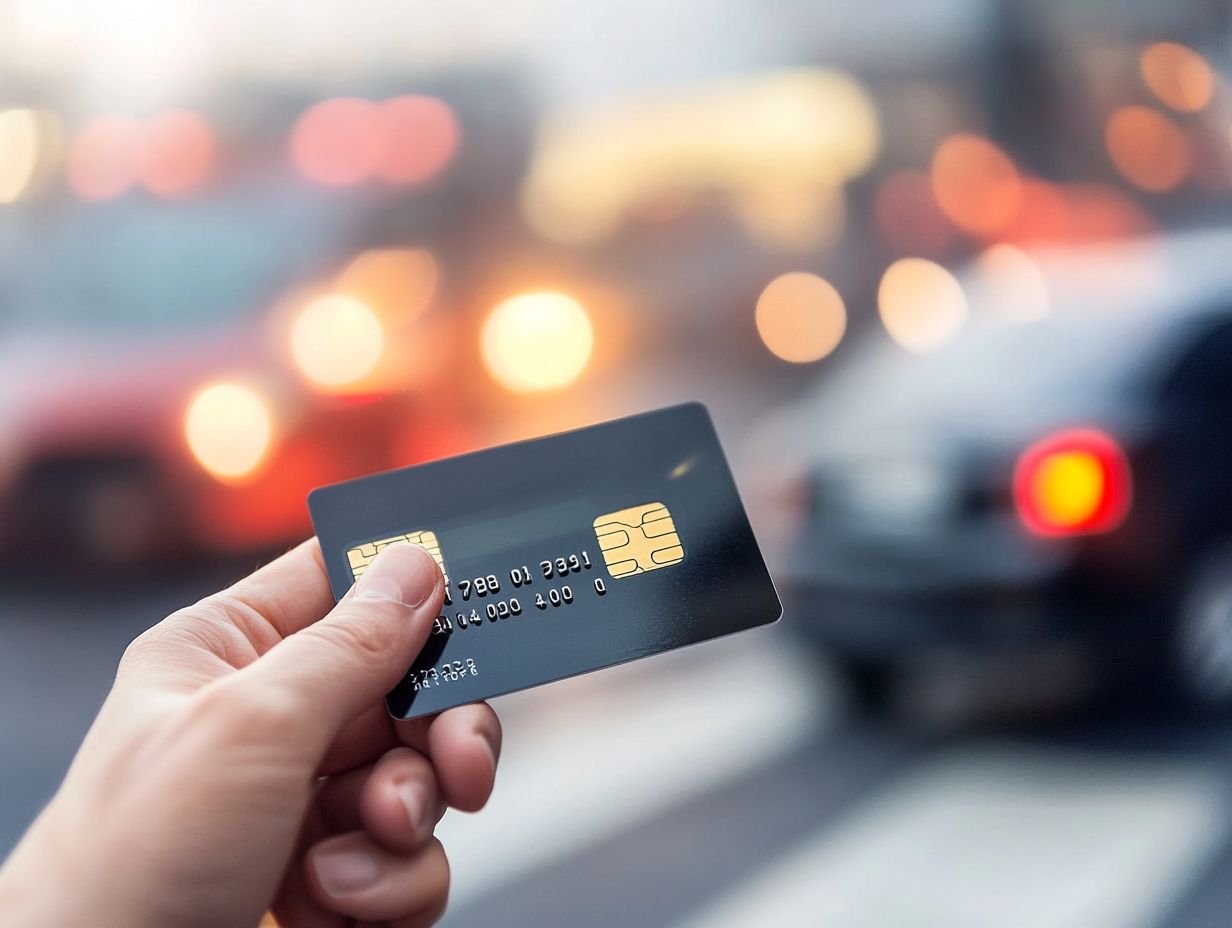
- Credit cards provide convenient and immediate access to funds during emergencies, making them a valuable tool in your money management.
- Using credit cards for emergency expenses can offer protection and security, as many cards come with built-in insurance and fraud protection features.
- When using credit cards during emergencies, carefully manage expenses to avoid accumulating debt and interest, which can lead to additional financial stress in the future.
Why Credit Cards Matter in Emergencies
Understanding the role of credit cards in emergencies is essential for effective money management and handling unexpected expenses. Emergency credit cards allow you quick access to funds when needed, helping you cover medical bills, rental payments, or other unforeseen costs.
With thoughtful planning, knowing how to apply for a credit card that fits your needs can help you navigate high interest rates while using credit wisely.
These financial tools address your immediate needs and help build a positive credit report, which is vital for future borrowing opportunities. Using emergency credit responsibly can enable you to take advantage of cash advances when necessary. A cash advance allows you to take out cash using your credit card, but it often comes with extra fees.
A solid strategy includes making timely repayments to establish a healthy repayment history, safeguarding your financial standing. Effective budgeting will help you avoid over-relying on credit during tough times, ensuring that your use of emergency credit cards enhances rather than hinders your financial well-being.
Benefits of Using Credit Cards in Emergencies
Using credit cards in emergencies presents several advantages that can significantly boost your financial security and provide peace of mind, including the benefits of using credit cards for purchases.
Emergency credit cards act as a reliable safety net, granting swift access to funds when you need them the most. They help shield you from financial pitfalls and effectively mitigate the strain of cash flow challenges arising from unexpected medical bills or rental costs.
Convenience and Access to Funds
Emergency credit cards offer exceptional convenience and immediate access to funds during unexpected financial hiccups. Whether you’re facing a medical emergency or urgent home repairs, having a credit card at your disposal allows you to tackle these expenses without the immediate pressure of depleting your savings or resorting to loans. For more insights, check out the advantages of credit cards.
In various scenarios, such as a car breakdown or unexpected travel due to family matters, the ability to use a credit card can truly be a lifesaver. These cards not only serve as a cushion during challenging times but often come equipped with features like cash advances, allowing you to quickly withdraw cash when needed.
By managing these cards responsibly, you can build a positive credit history, enhancing your access to credit in the future. However, it’s essential to stay aware of repayment terms to avoid debt traps, ensuring that this financial safety net serves as a valuable tool rather than a burden.
Protection and Security
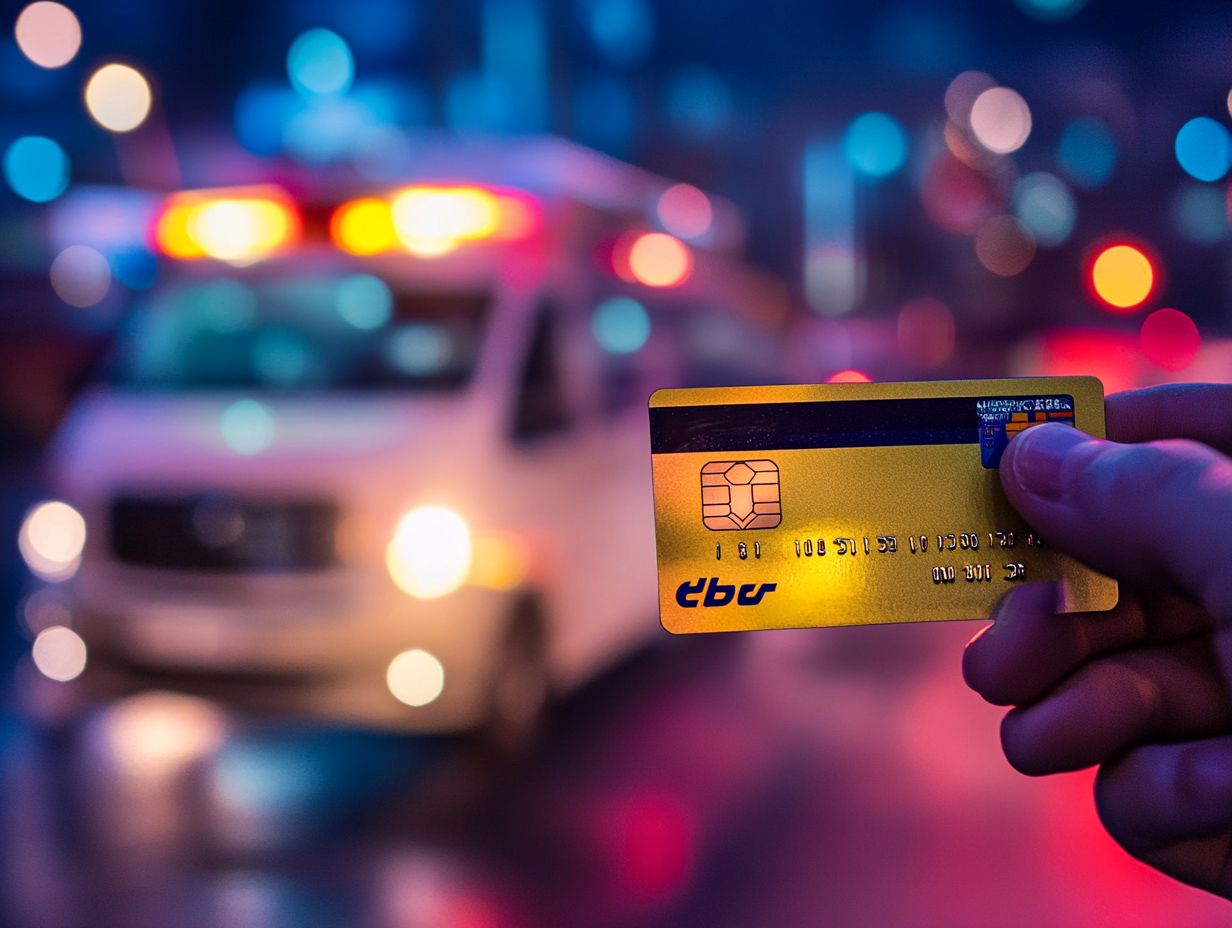
Emergency credit cards give you quick access to funds and a layer of protection when you need it most. They help you avoid debt while shielding you from high-interest rates that traditional loans may impose.
This is especially crucial during financial crises when high-interest loans can threaten your financial health. With features like fraud protection and lower interest rates, these cards encourage responsible spending while safeguarding your finances.
It’s essential to manage your credit card debt effectively. Keeping a well-maintained balance gives you peace of mind, helping you navigate tough economic situations without falling into a debt spiral, which is when debt keeps increasing and is hard to escape.
Tips for Using Credit Cards in Emergencies
Using credit cards in emergencies requires careful management and strategic planning. This ensures you maintain financial stability and avoid potential pitfalls.
Master the art of expense management by keeping track of how much credit you’re using. Consistently make your monthly minimum payments to navigate emergencies confidently, protecting your financial future.
Managing Expenses and Payments
Effectively managing your expenses and payments is crucial when navigating emergency credit cards. This helps you avoid the tempting yet dangerous trap of accumulating credit card debt.
Create a budget that includes monthly minimum payments and essential expenses. This approach allows you to sidestep financial strain during emergencies.
Track your spending meticulously. Categorizing each purchase helps identify areas for potential savings. Budgeting apps or organized spreadsheets can simplify this process, giving you a clear snapshot of your financial health.
Regularly review your statements to stay aware of outstanding balances and interest rates. Communication with creditors can also help set up manageable repayment plans during challenging times.
By prioritizing essential expenses and setting aside a portion of your paycheck for credit card payments, you can build financial stability while preparing for unforeseen circumstances.
Avoiding Debt and Interest
Avoiding debt and minimizing interest charges are essential when using emergency credit cards. Understanding high-interest rates and maintaining a positive repayment history can help you meet your financial obligations without falling into a cycle of debt.
Create a budget that allocates funds specifically for monthly credit card payments. Clear your balances promptly to avoid accruing interest. Setting up payment reminders or opting for automatic deductions can help ensure you never miss a due date.
Make it a priority to understand the terms of your card agreements, including promotional rates and fees, so you can make informed decisions.
Practice mindful spending and regularly review your statements to take charge of your finances. Cultivating a robust credit profile ultimately enhances your financial well-being.
Alternatives to Credit Cards for Emergencies
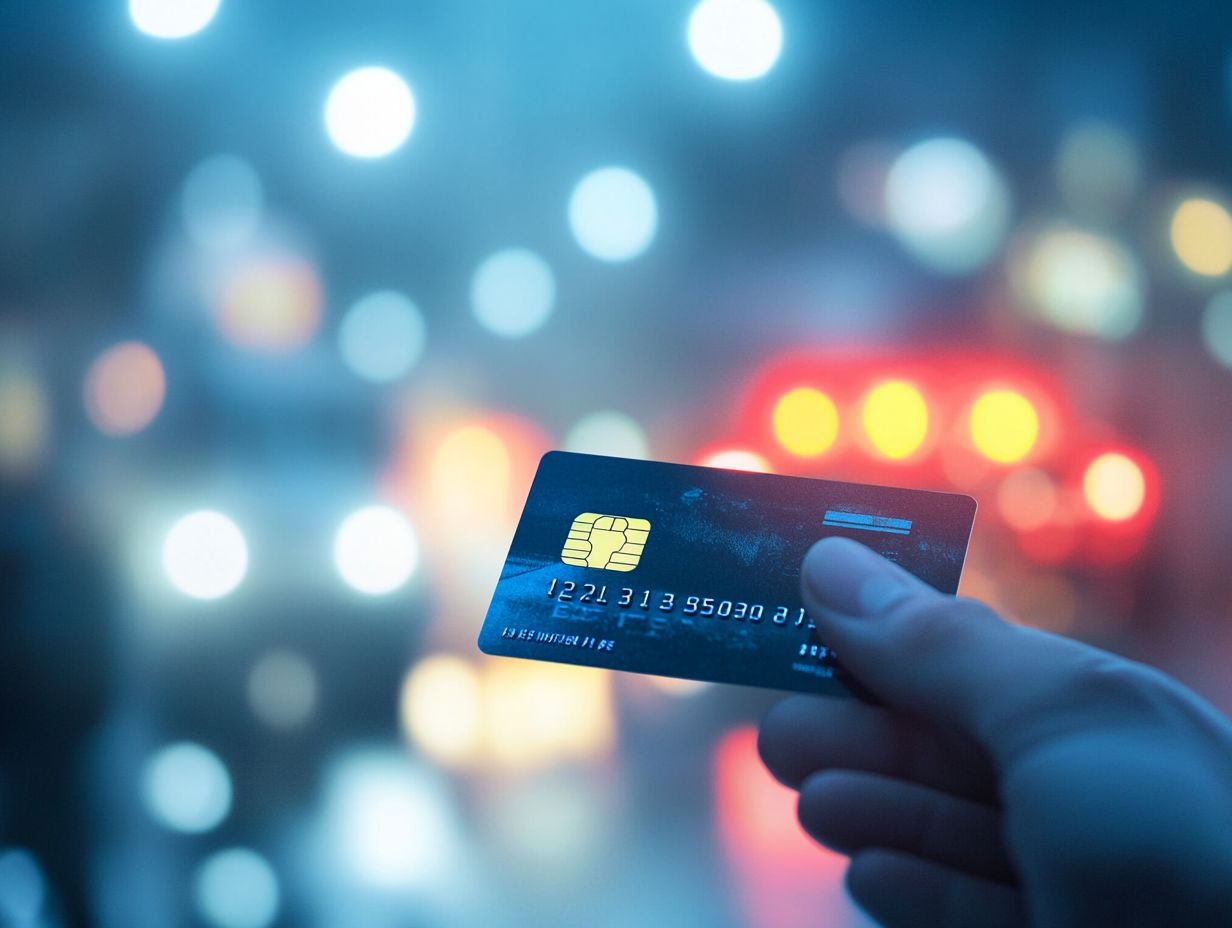
While emergency credit cards serve a purpose, explore other avenues for financial security. Establishing an emergency fund, considering personal loans, or utilizing cash advances may provide effective alternatives for unexpected expenses.
These options can help you avoid the high-interest rates often associated with credit card debt, allowing you to manage your finances more wisely. Start budgeting today!
Savings and Emergency Funds
Establishing a savings account specifically for emergency funds is one of the smartest steps you can take to secure your financial future. Emergency funds serve as a vital safety net, giving you quick access to cash when you need it most, while protecting your credit report and preventing unnecessary debt.
By setting aside a portion of your income each month, you create a buffer that provides peace of mind against unexpected expenses whether it’s a medical emergency, car repairs, or an unexpected job loss. Aim for three to six months worth of living expenses in this fund. This helps cover essential costs during challenging times and spares you from high-interest loans.
With these savings in place, you can focus on long-term goals like retirement or homeownership, free from the anxiety of financial setbacks. Track your expenses regularly and reassess your financial goals to stay secure and prepared for whatever life throws your way.
Personal Loans and Other Options
Considering personal loans as an alternative to emergency credit cards can be a savvy approach to managing financial responsibilities during urgent situations. Personal loans often have lower interest rates than credit cards, allowing you to access funds without getting trapped in a web of extra charges.
It’s crucial to thoughtfully weigh the advantages and disadvantages. Personal loans usually provide fixed repayment terms, simplifying your budgeting process. However, assess your credit access first to qualify for the best rates.
Some personal loans may include fees charged by lenders to process your loan, which could diminish their benefits. Explore various lenders and repayment options to find a plan that works for you. Always seek offers without hidden costs to avoid high-interest pitfalls.
Frequently Asked Questions
What are the benefits of using credit cards during emergencies?
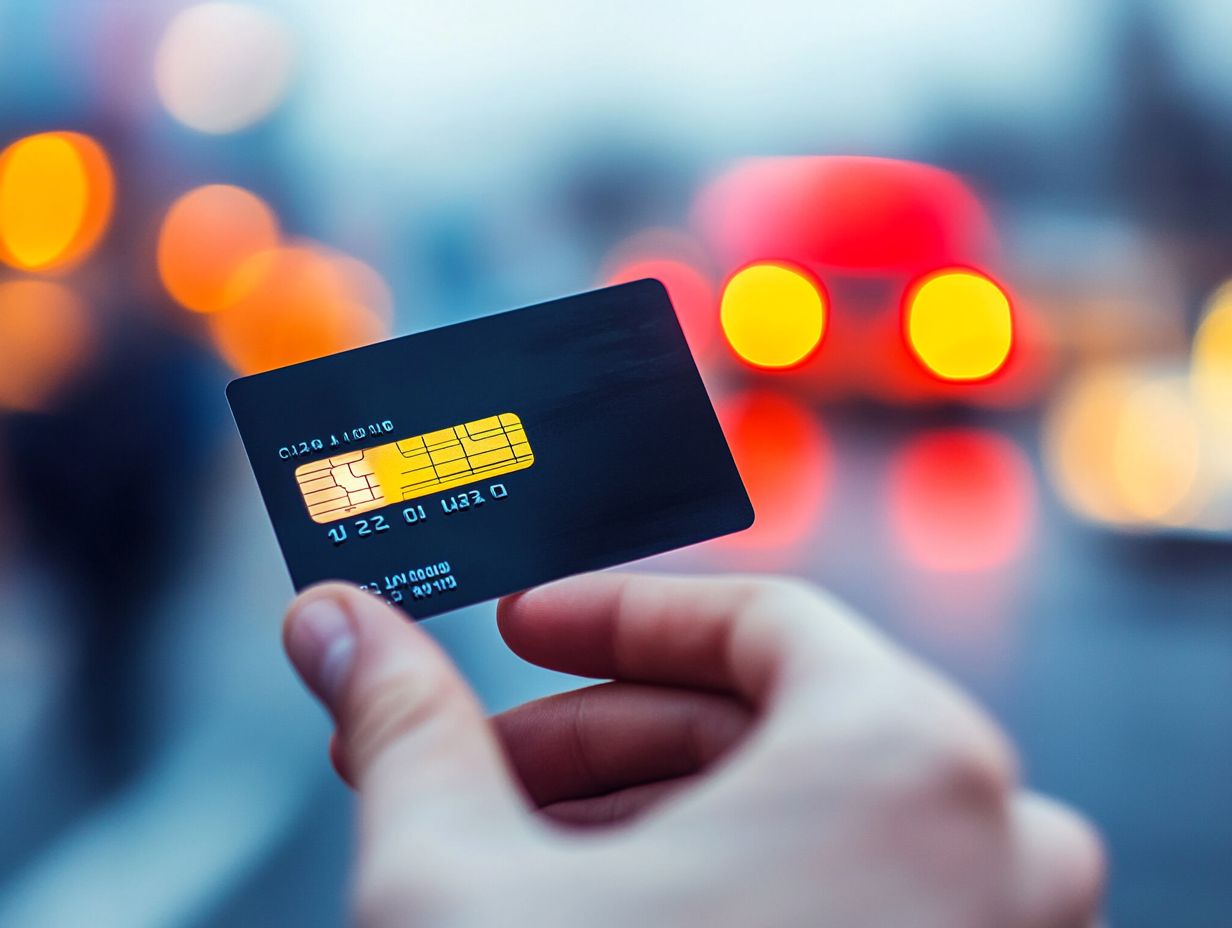
Using credit cards during emergencies allows you to access funds immediately, without waiting for a loan or withdrawal, highlighting the benefits of using credit cards responsibly.
How can credit cards help with unexpected costs during a crisis?
Yes, credit cards are a convenient way to cover unexpected expenses during a crisis, such as car repairs or medical bills.
Do credit cards offer any additional protection during emergencies?
Some credit cards offer purchase protection and travel insurance, which can be helpful during unforeseen emergencies.
What are the drawbacks of using credit cards during emergencies?
One drawback is the potential for high interest rates if the balance isn’t paid off quickly. It’s important to use credit cards responsibly.
Can credit cards be used for emergency travel expenses?
Yes, credit cards can cover travel expenses during an emergency, such as last-minute flights or accommodations.
What are the best practices for using credit cards during emergencies?
Have a plan for paying off the balance and use credit cards only for necessary expenses during emergencies.

